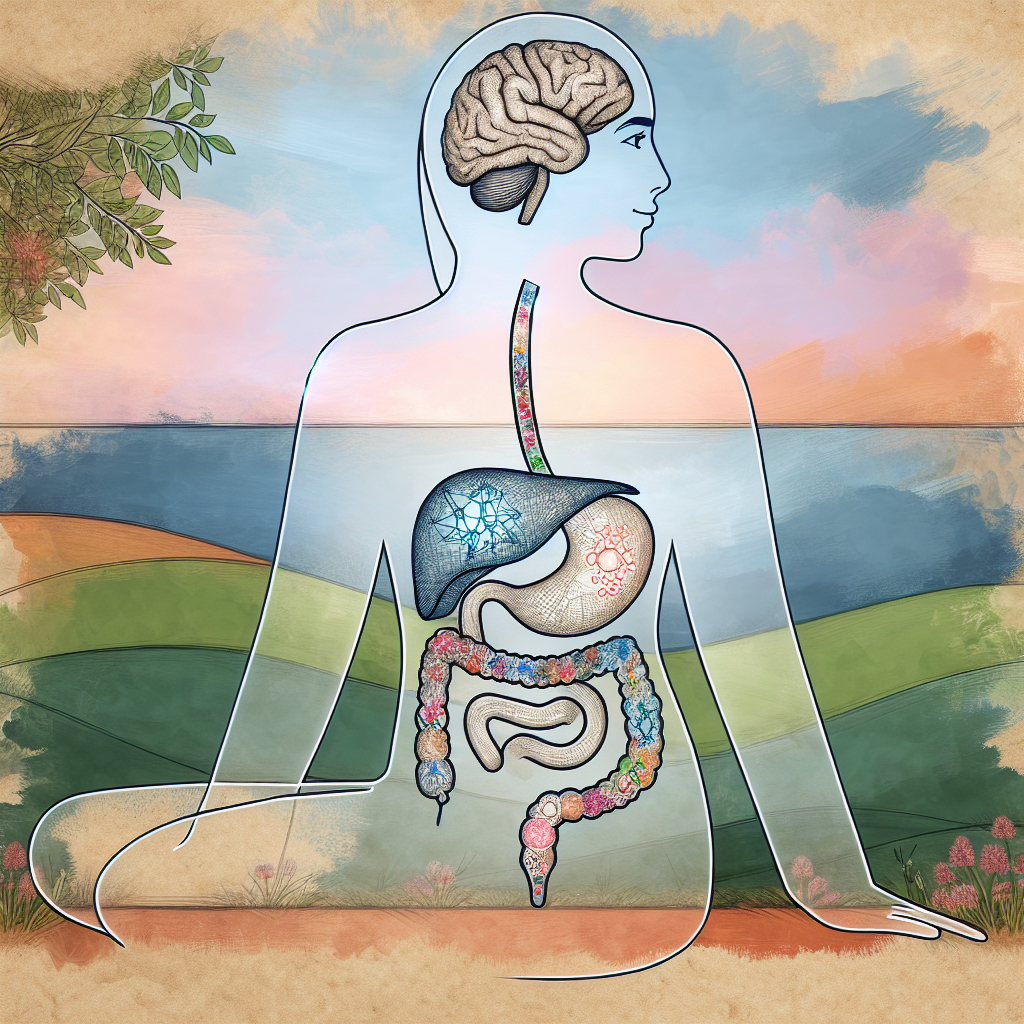### Unraveling the Mysteries of Gut Health: The Link between Gut Microbiome and Mental Health
As our understanding of the human body has evolved, so too has our comprehension of the role our gut microbiome plays in overall health. Once considered a basic system responsible for digestion and nutrient absorption, the modern perspective recognizes the gut’s extensive influence. Exciting new research suggests a significant connection between our gut health and mental well-being. It’s an emerging field referred to as *Psychobiotics*. So, let’s delve into the belly of the beast, shall we?
**The Gut-Brain Axis: Laying the Groundwork**
The gut-brain axis is a bi-directional communication network that links the central nervous system (including the brain) with the enteric nervous system (that governs the gastrointestinal tract). Various mechanisms — including immune, endocrine, and nerve pathways — facilitate this dialogue.
Recent studies show that our gut microbiota, a diverse community of trillions of bacteria living within our digestive system, has a say in this conversation. It communicates with the brain via the gut-brain axis, influencing our mood, emotions, stress responses, and even cognitive functions.
**Gut Microbiome and Mental Health: The Bridge**
Rabbits out of a hat? Not quite. The principle is sound — it’s all about *microbial metabolites*, biochemical goodies our gut bacteria produce during digestion. For instance, gut microbiota can produce neurotransmitters like serotonin, dubbed “the happiness hormone,” estimated to be about 90% of the total serotonin in our bodies!
Research also points to the role of gut microbiome in the hypothalamic-pituitary-adrenal (HPA) axis, the body’s central stress response system. Alterations in the gut microbiota could dysregulate the HPA axis, contributing to anxiety and depressive behaviors.
**The Evidence: From Mice to Men**
Rodent studies have been instrumental in exploring the gut-brain relationship. For example, germ-free mice (raised without gut microbiota) exhibit increased stress responses. However, introducing a healthy gut microbiota to these mice reduces these enhanced stress responses, hinting at potential microbiota-based therapies.
Translating this to humans, research is promising, but still maturing. Several human studies point toward the benefits of probiotics (live beneficial bacteria), prebiotics (non-digestible fiber that feeds good bacteria), and fecal microbiota transplants to improve mental health disorders. However, more large-scale, well-controlled studies are needed to validate these findings and unlock potential therapeutic approaches.
**Caring for Your Gut: What Can You Do?**
While we are still unraveling the intricate gut-brain connections, it’s evident that good gut health is pivotal. Here are a few steps to keep your gut happy and, possibly, lift your spirits:
– **Fiber up**: Include plenty of dietary fiber from fruits, vegetables, legumes, and whole grains. These nourish your gut microbiota, encouraging the production of beneficial metabolites.
– **Probiotic power**: Eating fermented foods like yogurt, kefir, sauerkraut, and kimchi helps increase the population of good bacteria in your gut.
– **Stay active**: Regular exercise contributes to a healthier, more diverse gut microbiota.
– **Mind the drugs**: Certain medications like antibiotics can disturb your gut microbiota, so use them judiciously.
– **Hit the hay**: Quality sleep is crucial for a fit gut microbiota.
The gut-brain conversation represents a thrilling frontier in health research. Although we have a long road ahead, appreciating the gut’s influence on mental health is a step in the right direction. The future is, quite literally, gut-wrenching!
*Disclaimer: This article is for informational purposes only and does not constitute medical advice. Always seek the advice of a healthcare professional for any health-related concerns.*
Sources:
1. [How your Gut Health Affects your Mental Health | Forbes Health](http://www.forbeshealth.com/)
2. [The Gut-Brain Connection | Harvard Health](http://www.health.harvard.edu/)
3. [Gut feelings: the microbiome and mental health | Nature Reviews Microbiology](http://www.nature.com/)


